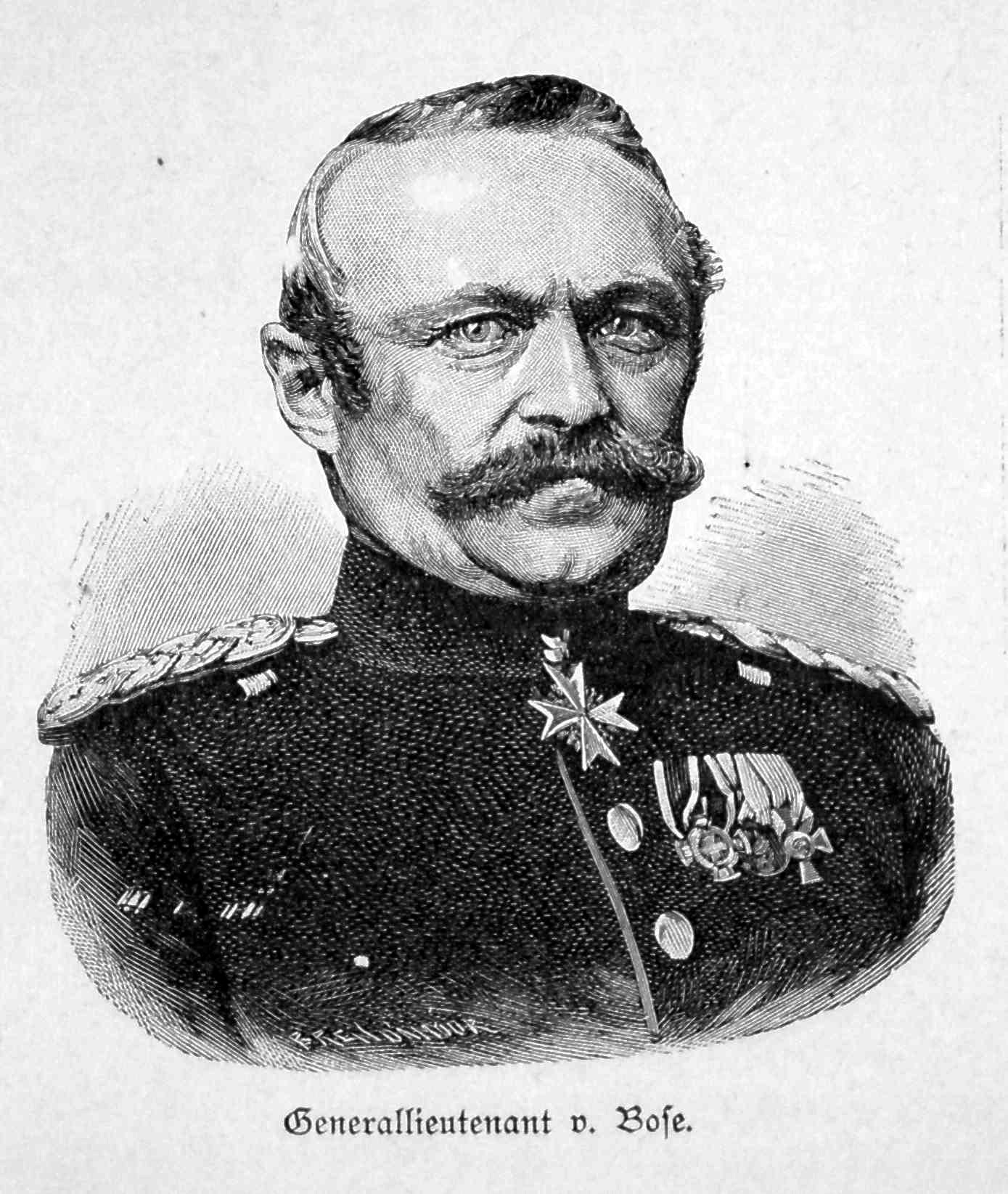|
Battle For Königshügel
The Battle of Königshügel (), also known as the Battle of Ober-Selk, was a battle in the Second Schleswig War where Austrian Major General Gondrecourt and his infantry brigade succeeded in occupying the area in front of the Danevirke near Ober-Selk () and taking the strategically important village of Königshügel (). Background After the Second Schleswig War had begun, Prussian and Austrian troops crossed into Schleswig on 1 February 1864 against the resistance of the Federal Assembly of the German Confederation, and war became inevitable. The Austrians attacked towards the refortified Dannevirke frontally while the Prussian forces struck the Danish fortifications at Mysunde (on the Schlei coast of Schwansen east of Schleswig, trying to bypass the Danevirke by crossing the frozen Schlei inlet, but in six hours could not take the Danish positions, and retreated. The Austrian forces were led by Leopold Gondrecourt and were ordered to capture the town of Königshügel, in orde ... [...More Info...] [...Related Items...] OR: [Wikipedia] [Google] [Baidu] |
Second Schleswig War
The Second Schleswig War (; or German Danish War), also sometimes known as the Dano-Prussian War or Prusso-Danish War, was the second military conflict over the Schleswig–Holstein question of the nineteenth century. The war began on 1 February 1864, when Prussian and Austrian forces crossed the border into the Danish fief Schleswig. Denmark fought troops of the Kingdom of Prussia and the Austrian Empire representing the German Confederation. Like the First Schleswig War (1848–1852), it was fought for control of the duchies of Schleswig, Holstein and Lauenburg. Succession disputes concerning the duchies arose when the Danish king died without an heir acceptable to the German Confederation. The war started after the passing of the History of Schleswig-Holstein#The November Constitution, November Constitution of 1863, which tied the Duchy of Schleswig more closely to the Denmark, Danish kingdom, which was viewed by the German side as a violation of the London Protocol (1852), L ... [...More Info...] [...Related Items...] OR: [Wikipedia] [Google] [Baidu] |
Theodor Fontane
Theodor Fontane (; 30 December 1819 – 20 September 1898) was a German novelist and poet, regarded by many as the most important 19th-century German-language Literary realism, realist author. He published the first of his novels, for which he is best known today, only at age 58 after a career as a journalist. Many of his novels delve into topics that were more or less taboo for discussion in the polite society of Fontane's day, including marital infidelity, class differences, urban vs. rural differences, abandonment of children, and suicide. His novels sold well during his lifetime and several have been adapted for film or audio works. Fontane's novels are known for their complex, often sceptical view of society in the German empire. He shows different social and political parts of society meeting and sometimes clashing, his main characters range from lower-middle class to Prussian nobility. Fontane is known as a writer of realism, not only because he was conscientious about th ... [...More Info...] [...Related Items...] OR: [Wikipedia] [Google] [Baidu] |
1864 In Denmark
Events from the year 1864 in Denmark. Incumbents * Monarch – Christian IX of Denmark, Christian IX * Prime minister – Ditlev Gothard Monrad (until 11 July), Christian Albrecht Bluhme Events * 1 February – The Second Schleswig War breaks out after the First Schleswig War had left the Schleswig-Holstein Question unsettled when German Confederation, Treussia-Austria crosses the Eider (river), River Eider with 57,000 soldiers. * February ** It soon results in the Evacuation of Danevirke. ** The Battle of Sankelmark, a minor battle which occurs at Sankelmark, on the road between Schleswig, Schleswig-Holstein, Schleswig and Flensburg, during the Danish retreat from Danevirke. * 17 March – The Battle of Jasmund (1864), Battle of Jasmund near the Prussian island of Rügen results in a tactical Danish victory. * 17 and 18 April – Denmark suffers a severe defeat to the German Confederation in the Battle of Dybbøl which effectively decides the war. * 9 May ... [...More Info...] [...Related Items...] OR: [Wikipedia] [Google] [Baidu] |
Conflicts In 1864
Conflict may refer to: Social sciences * Conflict (process), the general pattern of groups dealing with disparate ideas * Conflict continuum from cooperation (low intensity), to contest, to higher intensity (violence and war) * Conflict of interest, involvement in multiple interests which could possibly corrupt the motivation or decision-making * Cultural conflict, a type of conflict that occurs when different cultural values and beliefs clash * Ethnic conflict, a conflict between two or more contending ethnic groups * Group conflict, conflict between groups * Intragroup conflict, conflict within groups * Organizational conflict, discord caused by opposition of needs, values, and interests between people working together * Role conflict, incompatible demands placed upon a person such that compliance with both would be difficult * Social conflict, the struggle for agency or power in something * Work–family conflict, incompatible demands between the work and family r ... [...More Info...] [...Related Items...] OR: [Wikipedia] [Google] [Baidu] |
Battles Of The Second Schleswig War
A battle is an occurrence of combat in warfare between opposing military units of any number or size. A war usually consists of multiple battles. In general, a battle is a military engagement that is well defined in duration, area, and force commitment. An engagement with only limited commitment between the forces and without decisive results is sometimes called a skirmish. The word "battle" can also be used infrequently to refer to an entire operational campaign, although this usage greatly diverges from its conventional or customary meaning. Generally, the word "battle" is used for such campaigns if referring to a protracted combat encounter in which either one or both of the combatants had the same methods, resources, and strategic objectives throughout the encounter. Some prominent examples of this would be the Battle of the Atlantic, Battle of Britain, and the Battle of France, all in World War II. Wars and military campaigns are guided by military strategy, whereas battl ... [...More Info...] [...Related Items...] OR: [Wikipedia] [Google] [Baidu] |
Battles Involving Austria
A battle is an occurrence of combat in warfare between opposing military units of any number or size. A war usually consists of multiple battles. In general, a battle is a military engagement that is well defined in duration, area, and force commitment. An engagement with only limited commitment between the forces and without decisive results is sometimes called a skirmish. The word "battle" can also be used infrequently to refer to an entire operational campaign, although this usage greatly diverges from its conventional or customary meaning. Generally, the word "battle" is used for such campaigns if referring to a protracted combat encounter in which either one or both of the combatants had the same methods, resources, and strategic objectives throughout the encounter. Some prominent examples of this would be the Battle of the Atlantic, Battle of Britain, and the Battle of France, all in World War II. Wars and military campaigns are guided by military strategy, whereas batt ... [...More Info...] [...Related Items...] OR: [Wikipedia] [Google] [Baidu] |
Winfried Vogel
Winfried is a masculine German given name. Notable people with the name include: *Winfried Berkemeier (born 1953), former German footballer *Winfried Bischoff (1941–2023), German-British businessperson * Winfried Bönig (born 1959), German organist *Winfried Brugger (1950–2010), German academic *Winfried Denk (born 1957), German physicist and neurobiologist * Winfried Glatzeder (born 1945), German television actor *Winfried Hassemer (1940–2014), German criminal law scientist *Winfried Klepsch (born 1956), retired West German long jumper *Winfried Kretschmann (born 1948), German politician *Winfried Michel (born 1948), German recorder player, composer, and editor of music *Winfried Nachtwei (born 1946), German politician *Winfried Schäfer (born 1950), German football manager and former player *Winfried Otto Schumann (1888–1974), German physicist *W. G. Sebald (1944–2001), German writer and academic (full name Winfried Georg Sebald) *Winfried Wiencek (1949–2025), German d ... [...More Info...] [...Related Items...] OR: [Wikipedia] [Google] [Baidu] |
Selk, Germany
Selk is a municipality in the district of Schleswig-Flensburg, in Schleswig-Holstein, Germany Germany, officially the Federal Republic of Germany, is a country in Central Europe. It lies between the Baltic Sea and the North Sea to the north and the Alps to the south. Its sixteen States of Germany, constituent states have a total popu .... References Schleswig-Flensburg {{SchleswigFlensburg-geo-stub ... [...More Info...] [...Related Items...] OR: [Wikipedia] [Google] [Baidu] |
Christian Julius De Meza
Christian Julius de Meza (14 January 1792 – 16 September 1865) was the commander of the Danish Army during the 1864 Second Schleswig War. De Meza was responsible for the withdrawal of the Danish army from the Danevirke, an event which shocked the Danish public and resulted in the loss of his command. Biography Of Sephardic descent, de Meza served honorably in the First War of Schleswig and played an important role in securing the Danish victory in the 1850 Battle of Isted—at its time, the largest battle in Scandinavian history. In 1864, de Meza was appointed supreme commander of the Danish forces. His objective was to defend the Danish border against a much greater combined Prusso-Austrian army. But at the age of 72, de Meza was well past his prime and his task became even more difficult due to the conflict erupting during the winter season. De Meza estimated that his men were facing certain defeat and a pointless loss of life, and on the evening of 5 February 1864 telegraph ... [...More Info...] [...Related Items...] OR: [Wikipedia] [Google] [Baidu] |
Prinzenpalais
The Prinzenpalais is a palace, now used as an art museum, in the city of Oldenburg, Lower Saxony, Germany. The museum houses the modern art collection of the State Museum for Art and Cultural History. The building dates from 1826 and is in the classical style. It was the residence of the Russian princes Alexander and Peter. Subsequently Grand Duke Niklaus Friedrich Peter occupied the building. In 2003, it became part of the State Museum of Art and Cultural History (with the Augusteum and Schloss Oldenburg) and is an art gallery. The museum concentrates on German artists, ranging from neoclassicism and Romanticism in the mid-19th century to the post-1945 era. The Prinzenpalais building is near the northeast corner of the Schlossgarten Oldenburg. The Augusteum, Elisabeth-Anna-Palais, and Schloss Oldenburg are all close to the museum. See also * Augusteum (Oldenburg), another art gallery close to the Prinzenpalais * List of visitor attractions in Oldenburg * State Museum for Art a ... [...More Info...] [...Related Items...] OR: [Wikipedia] [Google] [Baidu] |
Battle Of Podol
The Battle of Podol was a minor engagement in the opening days of the Battle of Königgrätz, Königgrätz campaign of the Austro-Prussian War in Bohemia on 26 and 27 June 1866. The battle took place in modern-day Svijany between troops of the Prussian First Army (Austro-Prussian War), First Army (Julius von Bose's 15th Brigade) and elements of Eduard Clam-Gallas' Austrian I Corps. Background On 24 June Prince Albert, King of Saxony, Albert of Saxony had been placed in overall command of Austro-Saxon forces along the Jizera (river), Iser river. Albert's troops joined up with Eduard Clam-Gallas' I Corps near Münchengrätz. On 26 June, Albert suggested that they occupy Turnov, Turnau to the north to cover their flank. Clam-Gallas disagreed and nothing was done until the afternoon, when Albert received word of the Prussian occupation of Turnau at the same time as an order arrived from Ludwig von Benedek, the commander of the Austrian Army of the North, to hold Turnau and Müncheng ... [...More Info...] [...Related Items...] OR: [Wikipedia] [Google] [Baidu] |






